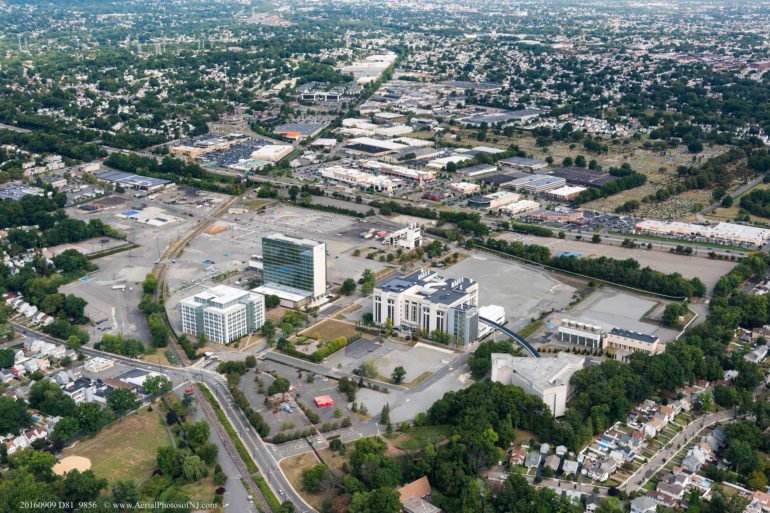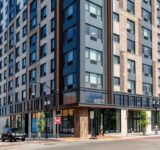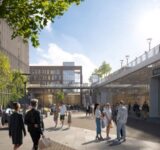An aerial view of the former Hoffmann-LaRoche campus in Nutley and Clifton, now known as ON3.
By Joshua Burd
Speaking to a crowd that included residents of Nutley and Clifton, Gene Diaz acknowledged the likely reality for those who had turned out to the former Hoffmann-LaRoche campus.
“Some of you may be visiting this campus for the very first time,” said Diaz, a principal of Prism Capital Partners. “Roche was an extremely private enterprise. Those gates were locked and secured — and unless you had a pass, you typically could not get on this campus.”
Encouraging them to “take a little peek around,” the developer welcomed those residents on Monday night as part of a forum tied to Prism’s plans for the campus. The firm has proposed redeveloping the 116-acre site on Route 3 into a bustling, mixed-use hub of business and research that is integrated with its two host communities.
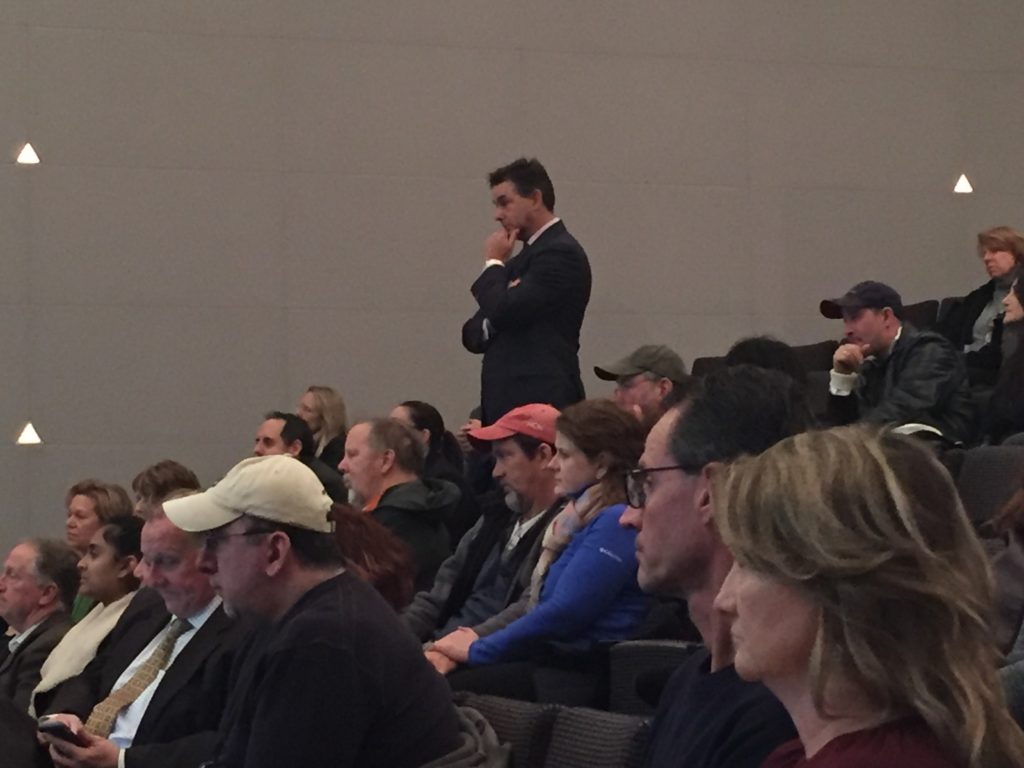
Fulfilling that plan will hinge on convincing stakeholders of the shifts in demographics, corporate strategy and lifestyle choices that are driving new development in the state. Prism sought to do exactly that on Monday, hosting Jim Hughes of Rutgers University for a presentation on the sweeping changes that have impacted New Jersey’s economy.
The well-known demographer tackled everything from disruptive technologies to the rise of millennials, who “have just supplanted the baby boom as the largest sector of America’s workforce,” he said. That has caused a seismic shift in real estate trends, as employers are now tailoring their strategies to millennial preferences such as technologically advanced workplaces, mass transit and live-work-play urban environments.
“They have become the prized labor force commodity, eagerly sought by a corporate America that increasingly requires next-gen digital talent,” said Hughes, the former dean of the Edward J. Bloustein School of Planning and Public Policy at Rutgers. “And where that talent wants to be now drives much corporate locational decision-making.”
He said that shift has been especially apparent in New Jersey, which saw a building boom of suburban office parks in the 1980s and is now suffering from a glut of outdated space at those properties.
“Many of our 20th-century suburban economic assets, once the centerpieces of our knowledge-based economy, are now suffering from functional obsolescence, transformed into 21st-century economic dinosaurs,” Hughes said in the auditorium inside Building 200, one of five high-end office and lab buildings that remain on the Roche campus. “Right now our suburban office ecosystem is oversupplied and under-demolished.”
The Rutgers professor also spoke of the revival of urban residential markets such as the Jersey City waterfront, a former industrial neighborhood that older generations once sought to escape. Meantime, he highlighted the struggles of traditional, fortress-like malls and traditional brick-and-mortar retailers, couple with the increasing popularity of experiential businesses such as fitness clubs, restaurants and entertainment concepts.
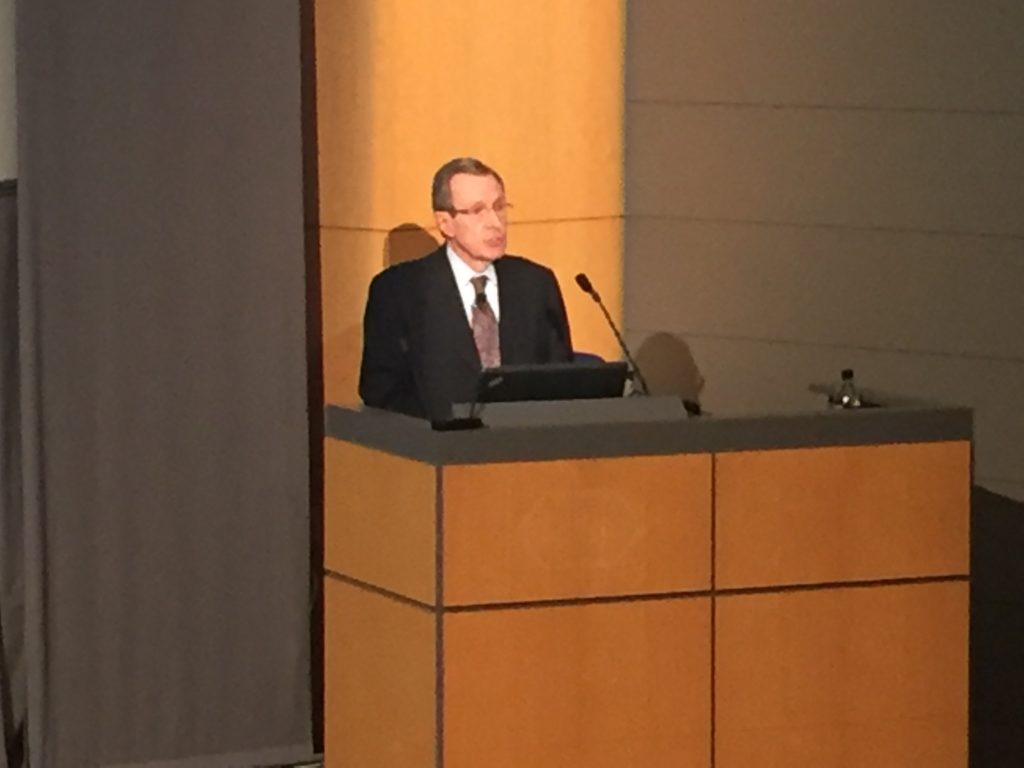
All of which play into Prism’s vision for the former Roche campus, now known as ON3. As Diaz noted on Monday, the firm has already attracted exciting, vibrant new tenants to the campus, including the biotech firm Modern Meadow and the Hackensack Meridian – Seton Hall School of Medicine.
But Diaz said the long-term survival of the former Roche campus will depend on creating a true mixed-use environment. As part of a two-day forum this week, Prism is hoping to educate residents who “don’t necessarily understand the shifts that are taking place in our economy and in our state and our local communities” that are affecting how people live, work and consume.
The suburban revitalization forum is scheduled to resume today (Thursday, March 8) with presentations by Ellen Dunham-Jones, professor and director of the urban design program at Georgia Tech, and Chris Porter, vice president and chief demographer at John Burns Real Estate Consulting.
The program is slated to begin at 6:30 p.m. at Building 200 on Metro Boulevard on the ON3 campus, located at 340 Kingsland St.
“Part of the reason we’re trying to work through a master-planning process is to help redevelop this campus and reinvigorate and reignite the economic foundations that helped to really support the towns of Nutley and Clifton,” Diaz told the crowd. “We wanted people to understand the processes by which a thoughtful developer goes through to try and inform themselves of what should be built, how it should be built and the reasons that we will ultimately propose to build and redevelop this campus.”

